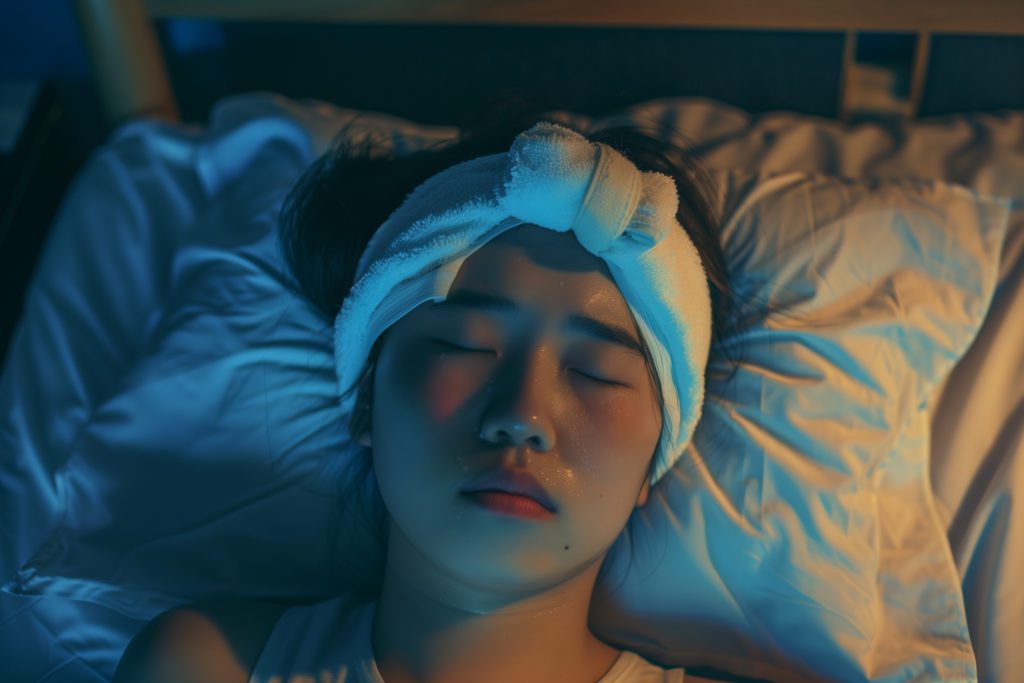
Restless Legs Syndrome: Causes, Triggers, and Management Techniques
Discover the causes, triggers, and effective management techniques for Restless Legs Syndrome to improve your sleep quality and overall well-being.

Do you struggle with unexplained movement of your legs during the night despite being asleep? Chances are, you might have restless legs syndrome (RLS). This condition is also known as Willis-Ekbom disease, and it is a common movement disorder that can be passed down from parents to their children. Mitigating the challenges of restless legs syndrome can be complex, but if you understand more about this disorder, what causes it and triggers worse symptoms, and how to manage it, you can take steps to enjoy better rest in the future.
In this article, we’ll explore this syndrome more, its causes and triggers, and ultimately, how you can manage the symptoms of this condition. We’ll ensure you understand all that you need to so that you can rest with ease, maybe even limiting the occurrences of these symptoms in the future. Let’s start with more background on what this disorder is and what makes it unique apart from other common sleep disorders.
What is Restless Legs Syndrome (RLS)?
Restless legs syndrome is a chronic, common, and multifactorial condition that is characterized by the need to move one’s legs. It is not painful, but these movements are considered to be abnormal, usually involving jerking movements while resting at night. You might not even know you have this condition, as someone else might point it out to you. However, up to three million cases occur in the United States alone per year (Source: PubMed).
When it comes to symptoms, you’re more likely to see worse signs of this disorder at night. These symptoms include the restlessness of one’s legs, as well as a sensation of “cramping” or “tingling” of one’s legs, which is common in up to 80% of all RLS patients. It’s an interesting disorder, but only prevalent in up to 15% of the general population.
While some people might imagine specific populations are affected, it can affect people of all ages and genders. Unfortunately, someone with RLS may experience a lower quality of life due to sleep disturbance and the long-term effects of this condition.
What Causes Restless Legs Syndrome (RLS)?
Depending on the type of RLS you may have, there are varying explanations as to what causes the condition. If you have primary or idiopathic RLS, it is likely caused by genetics, meaning that your mother or father also has RLS. However, you may also have RLS due to low amounts of iron in the brain, leading to the expected symptoms that we discussed.
As far as secondary RLS, those who are diagnosed with secondary RLS have a different set of causes. These can include chronic iron deficiency, kidney failure, diabetes, and pregnancy. You could also develop restless legs syndrome because of a medication that you may be taking as well. Dopamine also might play a role in secondary RLS, mainly due to how dopamine agonists, a specific type of medication, help alleviate RLS symptoms.
Triggers That Can Worsen Restless Legs Syndrome (RLS)
Unfortunately, if you are trying to alleviate your symptoms of RLS, it might be more complicated than you think. Some experts have found that RLS symptoms are triggered by simply trying to rest or sleep. Fortunately, we do know that pregnancy hormones, like estrogen, do not trigger this condition. Here is a list of some triggers that have been proven to potentially worsen these symptoms:
- Caffeine and Alcohol: As stimulants and depressants, these can have a specific effect on the brain, which could lead to worse symptoms over time and more movement during rest. Reducing your caffeine intake can lessen symptoms.
- Tobacco Usage: If you are a smoker, these might also trigger your RLS symptoms. Try to limit how much you smoke—and when you smoke—to help improve your health and make your RLS symptoms more manageable.
- Nutritional Deficiencies: As you have already guessed, iron plays a significant role in some RLS cases. When you struggle with low levels of iron, you can exacerbate symptoms, which is why people suggest iron supplements to lessen symptoms.
- Poor Sleep Environment: If you’re resting in a place that is not conducive to sleep, your rest could be disrupted by your RLS symptoms. That means prioritizing ample rest, quiet settings, and a relaxing space for you to unwind.
- Healthy Lifestyle Choices: From working out too much to working out too little, this can all play a role in your RLS symptoms. Make sure you make good choices to stay active and healthy, as this can help with managing RLS and alleviating triggers.
How to Manage Your Restless Legs Syndrome (RLS)
When it comes to managing RLS, you have a few options to ensure that you take care of yourself and limit your symptoms. Let’s explore a few options, as well as how this could benefit your overall health:
- Medications to Alleviate RLS: From iron supplements to anti-seizure medications to benzodiazepines, you have a few options to choose from. Iron supplements are the least impactful due to their simplistic formulation, but you may be recommended other advanced medications that can increase dopamine, limit nerve pain, or even treat anxiety related to your RLS.
- Lifestyle Changes for Health: As long as you’re focusing on a healthy lifestyle, you can manage your symptoms. This includes a balanced exercise routine, adhering to a proper sleep schedule, and also mitigating stress, whether it’s through yoga, meditation, or breathing exercises. You can customize these lifestyle factors to suit your needs and desires!
- Dietary Changes: Since RLS is more commonly associated with low iron, it is never a bad idea to focus on a balanced plate of nutrients and vitamins at every meal. Make sure to eat a lot of whole, organic foods and limit your intake of substances like tobacco, alcohol, or caffeine.
- Other Diverse Therapies: From regular massages to acupuncture to cognitive behavioral therapy (CBT), these can benefit your health and provide a non-invasive form of RLS management (Source: PubMed). You can explore these options with a medical professional, and they can help you compile a personalized care plan just for you!
How Will You Manage Your Restless Legs Syndrome (RLS)?
When it comes to your RLS, you definitely have plenty of options to mitigate your symptoms. Whether you try to do it on your own or seek the help of a practiced experienced medical professional, you can improve your quality of rest and life. What steps will you take today to mitigate your RLS?

Written by
Marie Soukup
Marie Soukup is a seasoned copywriter, editor, and Integrative Nutrition Health Coach with a certificate from the Institute of Integrative Nutrition (IIN). With years of experience working with brands across diverse industries, Marie is passionate about holistic health and crafting compelling content.
Download Pillow
Get help
Press & News
Legal
Connect
X (Twitter)
Company
Copyright © Neybox Digital Ltd.



